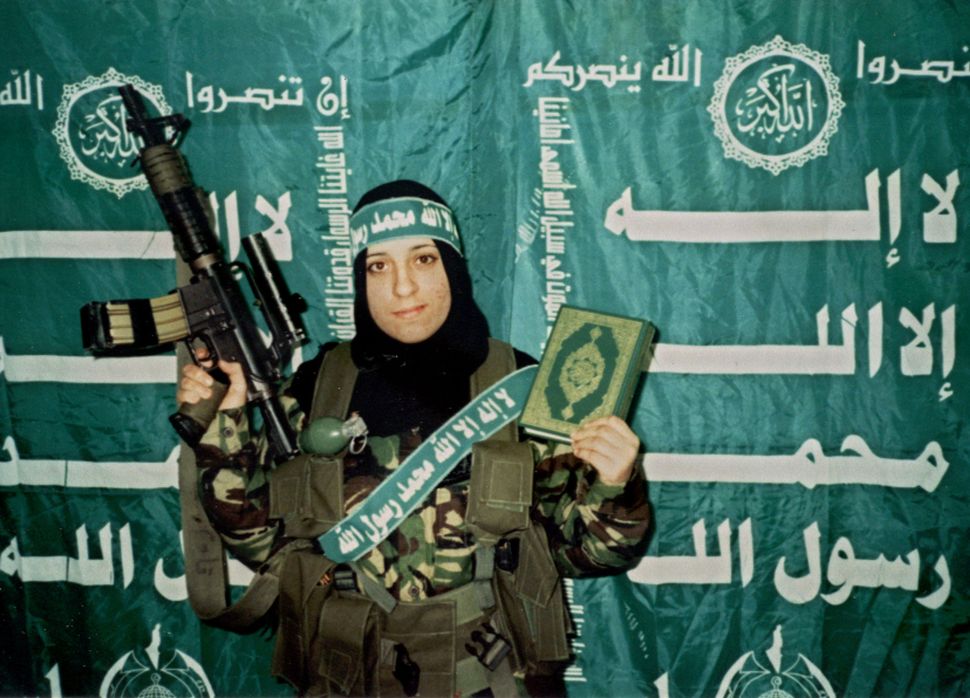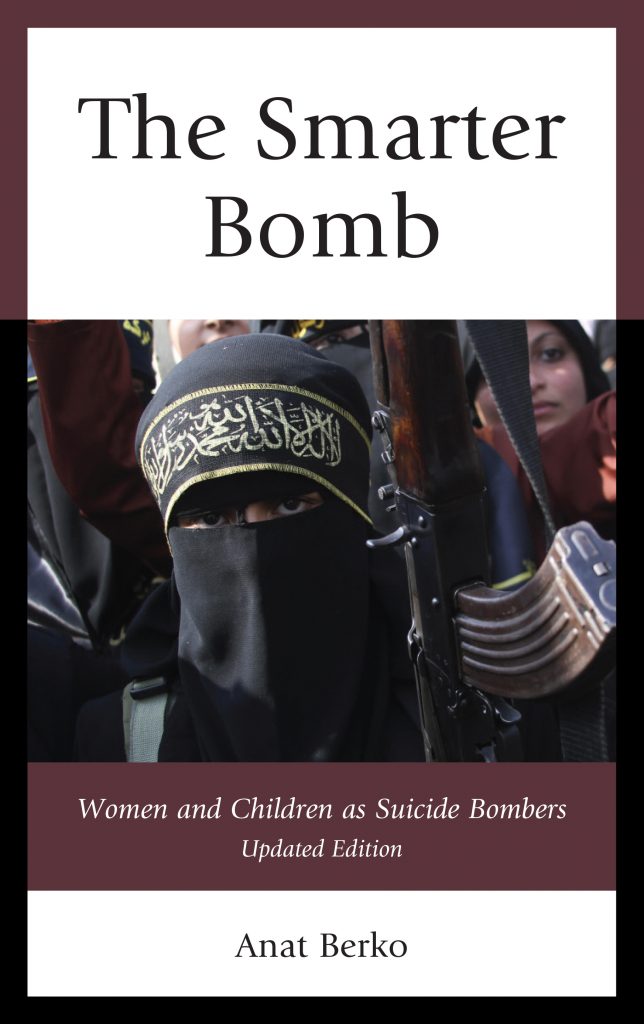Australia/Israel Review
Biblio File: The Psychology of a Human Bomb
Oct 9, 2018 | Abigail Esman


The Smarter Bomb: Women and Children as Suicide Bombers
by Anat Berko
Rowman & Littlefield, Updated edition 2016, 222 pp. US$28
There was Muneira, who planned to blow herself up at a hospital near Tel Aviv. There was Jemilla, who escorted a young boy to his suicide bombing at a market. And there was Sabiha, who prepared explosives and trained other women to do the same.
With courage and compassion, Anat Berko, a criminologist and member of the Foreign Affairs and Defence Committee of Israel’s Knesset, interviewed them all.
Their stories, and the insights they provide into the motives and lives of female suicide bombers, fill the pages of The Smarter Bomb: Women and Children as Suicide Bombers, newly released in paperback. Though first published in 2012, the updated edition underscores the difficult, ongoing challenges suicide bombers pose, and the continued efforts to understand the relatively new phenomenon of women suicide bombers and the role of women in violent jihad.
Berko spent 15 years visiting Palestinian women in Israeli jails, gradually developing relationships that, if they could not be described as “friendships,” were built on mutual trust and an unexpected respect. What she found, and what her readers discover through her, are women who seem never to have fully understood the weight of their own actions. She asked a woman she calls “Ayisha,” for instance, if she “felt anything for her potential Israeli victims.”
“I saw the blood of Palestinians and I didn’t think about my mother or my family,” Ayisha replied, “so how could I think about Israelis I didn’t know?”
Rather, Berko describes women far more concerned about themselves. “Rania,” for instance, complains that newspaper accounts had referred to her as being nine months pregnant at the time of her attack, when she was actually in her third month. She feared people would condemn her for trying to kill her own child. Others speak frequently of fearing their husbands will take another wife before they are released.
Through her dedication to the issues and her genuine compassion for these women, Berko not only earned their trust; in writing of them, she humanises them to the reader in the same way she seems to humanise Israelis and Jews to them. Hence we learn that not all of these women are in prison because they genuinely wished to kill Israelis; some rather saw prison as a preferable alternative to the oppressive and violent homes they were forced to share with abusive husbands or fathers.
Berko also explores the stories of child would-be bombers who – unlike most of the women – are recruited, often through deceit, and almost always with promises of a paradise filled with virgins who await their swift arrival. Others, like the women, seem to relate terrorism with violence at home: one told Berko that he “chose terrorism in revenge and to rebel against his parents.”
Similarly, there are also those who see terrorism as a confirmation of their manhood, whose machismo is intricately tied with the notion that violence breeds respect. “Fawaz,” for instance, who was 15 when he was stopped wearing an explosive belt on an Israeli bus, told Berko, “I had my picture taken with a gun and a Koran, and I felt I was a man and not weak; I felt I had power….”
In writing The Smarter Bomb, Berko set out to answer specific questions: “Is the involvement in terrorism a sign of Palestinian women’s liberation, or is it another way of oppressing? Who are they, the Palestinian women who dared to leave their homes… what made them and Palestinian children join the terrorist machine? Can the human bombs of Islamic terrorism be stopped, and if so, how?”
By presenting the material as raw statement, largely uninterrupted by any interpretations of her own, Berko allows her readers to find those answers themselves, to draw their own parallels and discover any patterns – or lack of them – among these terrorists, who represent the most vulnerable members of Palestinian society.
But her studies have far wider significance, as she observes, “Suicide bombing terrorism is becoming refined, and it is contagious.”
Abigail R. Esman, the author of Radical State: How Jihad Is Winning Over Democracy in the West (Praeger, 2010), is a freelance writer based in New York and the Netherlands. © IPT News (www.www.investigativeproject.org) reprinted by permission, all rights reserved.
Tags: Israel, Palestinians, Terrorism






